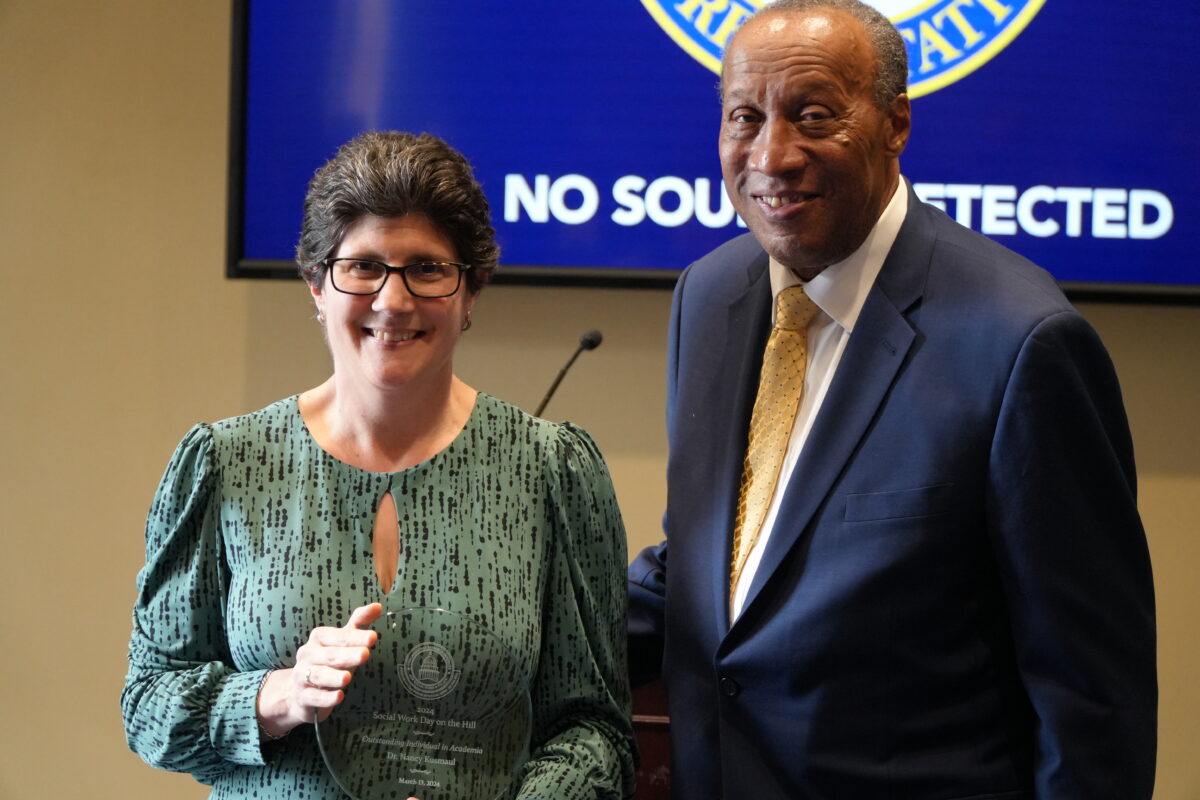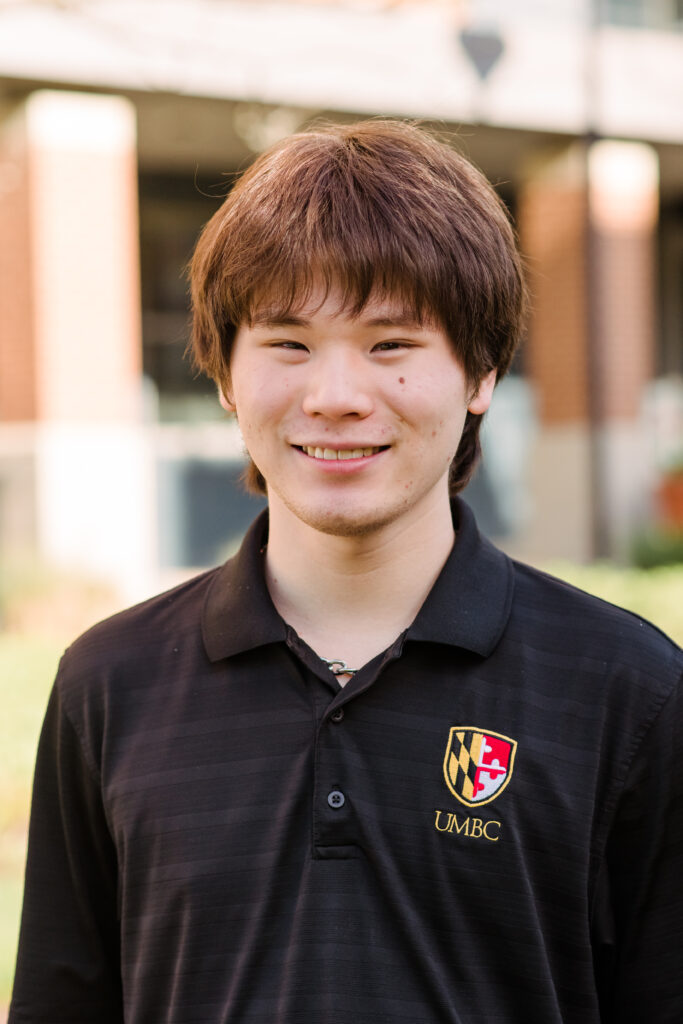The Serious Science of Human Nature
Robert Provine’s groundbreaking research into what makes us human has earned him attention from scientists and media from around the world. Provine studies how instinctive behaviors like laughter, yawning and tickling give new insights into evolution, brain function and social science. Two of his essays were recently chosen for “best of year” literary anthologies, placing him alongside top comedic minds from “The Simpsons,” “The Daily Show” and “The Onion” as well as leading scientists.
One of his essays appears in The Best American Nonrequired Reading 2006, a book introduced by “The Simpsons” creator Matt Groening and compiled by novelist Dave Eggers. The book also includes contributions from Pulitzer Prize-winning cartoonist Art Spiegelman and satire from “The Daily Show,” “This American Life” and “The Onion.”
On the more serious side, a Provine essay on yawning was chosen for “The Best American Science Writing 2006,” putting him in the company of top writers from The New York Times, Wired, The New Yorker and others. Other well-known works have cited Provine’s unique research, including bestsellers like Malcolm Gladwell’s The Tipping Point, Daniel Pink’s A Whole New Mind, Steven Pinkner’s How the Mind Works and Kay Redfield Jamison’s Exuberance.
“It’s a pleasure being in the company of scientists and writers whose work I admire,” said Provine, a professor of psychology who’s been at UMBC for 32 years.
Provine is also one of the most cited researchers in leading textbooks in his specialty, not surprising for a former student of the Nobel Prize winning neuroscientist Rita Levi-Montalcini. Comedians Jay Leno and Arsenio Hall have mentioned his ideas in their monologues, and Provine has been involved in television shows with humorists Bill Cosby, Conan O’Brian, Al Franken and Alan Alda.
A man of diverse academic and personal interests, Provine enjoys racing his Corvette, painting and playing jazz saxophone. But one of his biggest passions is teaching and researching with students. All of the co-authors on his research papers are UMBC undergraduates, several of whom are featured in his 2000 book Laughter: A Scientific Investigation which he calls “in part, a story about undergraduate research at UMBC.”
Provine’s future plans include a forthcoming article on how tickling is the basis for the self/other perception, the root of social play and a good source of information on how to build better robots. He joins other scientific and literary luminaries in “What is Your Dangerous Idea,” his third contribution to the Today’s Leading Thinkers series of texts based on essays for Edge.org.
He seems very happy to have found a niche that carries his ideas around the world and can take him to the chimpanzee section of the zoo, the opera house and then to the toy store for research. “Unlike most jobs, professors are lucky to be able to pursue their ideas where ever they lead,” he said.
Provine suspects there is a good reason why his research and writing have wide appeal. “The social sciences have traditionally focused on the environmental influences on behavior and the differences between individuals and cultures,” he said. “But my work has attended to basic elements of human nature that all individuals and cultures have in common.”
(12/11/06)
© 2006-07 University of Maryland, Baltimore County 1000 Hilltop Circle, Baltimore, MD 21250 410-455-1000



